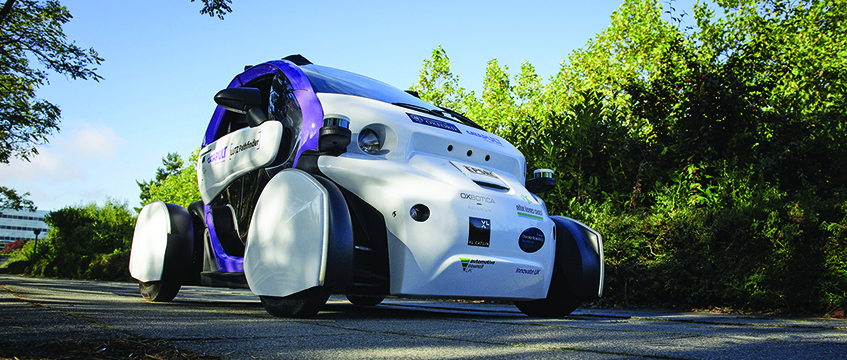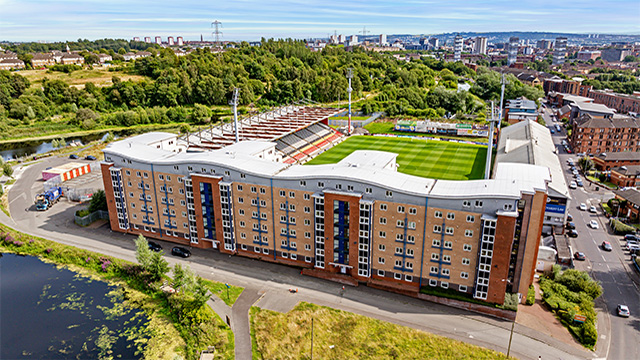Autonomous vehicles lead drive for change in retail sector
Picture the scene: Your electric car drives you to your favourite shopping and leisure centre or retail park, drops you off and then, using your smart phone, you let it know when you are ready to be picked up again.
Sounds like science fiction, but it’s a fiction that could become a fact in the not too distant future – the technologies are already being developed and tested.
“Future generations are going to say they can’t believe we were driving around in those polluting vehicles,” says Steve Norris, who heads the national retail and town centre team at Carter Jonas.
Picture the scene: Your electric car drives you to your favourite shopping and leisure centre or retail park, drops you off and then, using your smart phone, you let it know when you are ready to be picked up again.
Sounds like science fiction, but it’s a fiction that could become a fact in the not too distant future – the technologies are already being developed and tested.
“Future generations are going to say they can’t believe we were driving around in those polluting vehicles,” says Steve Norris, who heads the national retail and town centre team at Carter Jonas.
Driverless and autonomous vehicles have big implications for the retail and leisure sector – not least over what car parks will look like if they are purely for compact car storage, and what happens to all those parking places that are no longer needed.
Research estimates we spend on average four days a year looking for a parking space, so there are time benefits too.
There is also the prospect of needing less road space. Driverless vehicles can travel closer together and sharing cars – something some believe will be the biggest game changer – could become more commonplace, meaning less vehicles generally.
Less road space could mean more public realm and, potentially, more development space.
And what will the entrance to your scheme look like if that is the main entry point, rather than via a multi-storey car park?
Once-in-a-generation opportunity
Obviously this isn’t going to happen overnight, but some landlords are already thinking ahead.
Just as developers are thinking about flexibility of shop space so sizes can be changed easily to meet changing demands, so they are also thinking about car parking.
Sophie Ross, group multi-channel head at Hammerson, says thought is going into the height of ceilings in car parks so they can be adapted for other uses.
“In our new developments we are starting to integrate some of these ideas into our plans. There is no point in building the same car parks that we have built for the last 40 years,” she says.
Martin Summerscales, lead retail consultant at CBRE, describes the adoption of driverless cars as a “once-in-a-generation opportunity” to use land freed up from parking differently.
“Perhaps it could be used for a distribution hub for retail deliveries, or hotels, offices or residential,” he says.
It has implications for both the value of those sites and also how development and urban landscapes will look.
There are also implications for what might happen to traditional high streets.
Summerscales says, for example, that high streets are not being designed for young people, who shop online and see the high street as somewhere to go to be entertained.
A real game-changer
While there is now a 2040 deadline for all cars in the UK to be electric (see below), according to Savills’ director of commercial research, Marie Hickey, it is the impact of driverless cars which often comes up in conversation with clients.
She says electric charging points are proliferating as increasing numbers of electric cars appear on the UK’s roads, but sees the driverless car as being the real game-changer in terms of the way retail and leisure developments are designed.
It is still early days on how driverless cars will shape the retail and leisure sector and while the change will no doubt be gradual, this technological advance does have the potential to make a fundamental change in the urban landscape.
Our friends electric
Fully electric cars clearly represent the next step for the car industry as the traditional combustible engine is phased out.
The UK government has recently set a target for the end of diesel and petrol vehicles by 2040.
The target represents a big stick which will faster drive a change that is already growing in momentum – BMW has recently announced it is to produce fully electric ‘e-Minis’ from its plant at Cowley in Oxfordshire from 2019. And Tesla recently launched its most affordable electric car model yet, with a waiting list of purchasers thought to have reached 500,000.
However, electric cars need charging: could this create a revenue generator for landlords particularly if car parking revenues diminish? Charging points are already being designed in as standard by some developers but demand is growing – London is set to double the amount of electric charging points available in the next year.
Could ample charging points replace ample car parking as convenience draw for customers to a scheme?
Main image © Ben Cawthra/REX/Shutterstock
WATCH: How landlords can plug in to Tesla’s charge
With the government signalling the end of petrol and diesel cars in the UK, Tesla is poised to become one of the key drivers of a zero-carbon future. EG looks at why landlords will have to pay attention to Tesla’s growth in coming years and what benefits that will have to the property industry.
For more on what Tesla’s growth means for property, read
EG’s interview with the company’s head of Western Europe, Georg Ell.











